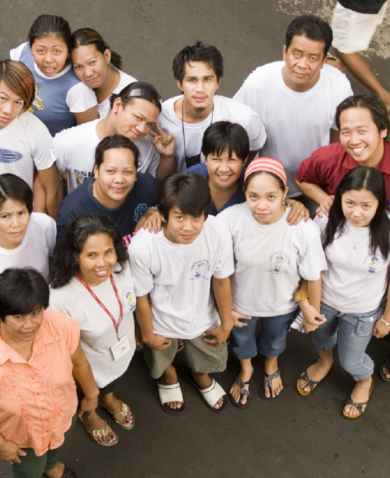
Making Job Matching Technology Work for Unemployed Youth
October 7, 2015 | 3 Minute ReadTechnology has the potential to connect job-seekers with employers around the world, but how do we make a better match for unemployed youth?
With global youth unemployment on the rise in nearly every region of the world, we as development practitioners are scrambling to find and scale solutions that quickly improve the employment outlook for youth. From a growing list of potential workforce development and placement tools, online job matching platforms have emerged as relatively simple and cost-effective solutions. The concept behind them is straightforward: provide job seekers and employers with platforms to find each other, and we should achieve greater efficiency in the job market.
In the developing world, it’s hard for young people to find good information about jobs. The old standbys — classified ads and school-based job centers — are scarce, even in urban centers, and often do not provide up-to-date information about the job market. In many countries, youth express frustration with their lack of access to information about jobs, opportunities to meet employers, and avenues to apply for jobs. A recent perception survey by the World Bank, for example, shows that youth in Egypt overwhelmingly rely on family and community connections when they are ready to look for a job and that they become quickly frustrated with these options if they are unsuccessful.
New technologies are clearly part of the solution. Particularly in the Middle East, where youth unemployment is more than 29 percent, high-tech solutions like SoukTel’s MatchMe mobile job matching program and Microsoft’s Ta3mal online job portal are connecting youth and employers, and showing great potential to assist large numbers of young job-seekers. For instance, the USAID Foras program in Iraq used Ta3mal to help train and match more than 13,500 Iraqi job seekers with private-sector firms in just under two years.
But as with any new, potentially game-changing technology, the way in which job matching tools are introduced and scaled in developing countries will be critical to their success. Below are three areas where the development community can focus to effectively roll-out these technologies:
- Equip youth to make informed career decisions using the new information at their fingertips. Giving youth access to better information about job opportunities is a huge step forward, but information alone is not enough. More can be done to ensure youth have access to career guidance and career planning so that they are able to pursue the best career paths for themselves. If youth can picture a progression between that entry-level job advert on their cell phone and a manager role at the same company, they may be more likely to apply. On the flip side, if they better recognize their own skills and goals, they will be more likely to pursue and land a satisfying job.
- Overcome major mismatches between employer and applicant perceptions to improve the job search. It is well-documented that oftentimes employers and job-seekers have very different ideas about what experience and skills are necessary for entry-level jobs. Is a master’s degree necessary in the hospitality industry, for example, where most learning takes place on the job? Are you capable of managing staff when you only have unpaid job experience? Helping both sides to set out with realistic expectations can improve the search for all parties when they use job matching technologies.
- Ensure that this technology and training reaches the most vulnerable groups. In another Compass post, “Open and Online Education for All Youth,” Sarah Grausz reminds us how important it is to make sure online education does not exacerbate inequality. The same can be said for online and mobile job matching tools. Although SoukTel’s MatchMe program is solving an issue of inequality for women in the Middle East, would this technology produce similar results in Africa? As development workers, we need to be constantly mindful the unintended effects of the technologies we use.











































